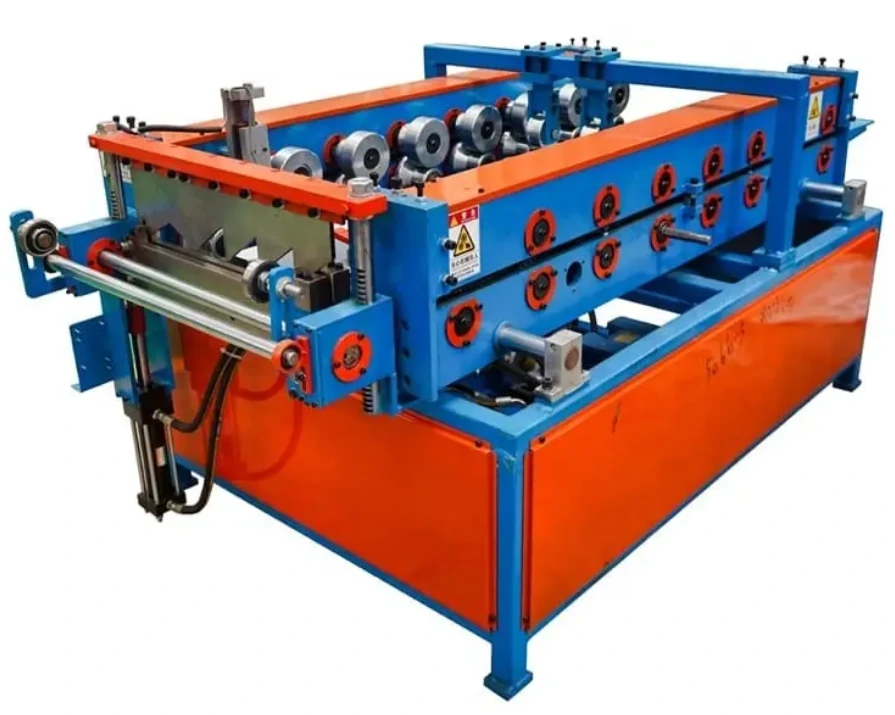roof panel roll forming machine
The Evolution of Roof Panel Roll Forming Machines
In the world of construction and manufacturing, efficiency and precision are paramount. Among the numerous tools and technologies that facilitate these objectives, roof panel roll forming machines stand out as vital equipment designed to create durable and reliable roofing materials. As the demand for modern roofing solutions grows, the importance of these machines has only intensified.
What is a Roof Panel Roll Forming Machine?
A roof panel roll forming machine is an advanced piece of machinery used in the production of metal roofing panels. These machines utilize a continuous process to convert flat metal coils into specific roof panel shapes and profiles. The roll forming process involves feeding metal strips through a series of rollers that incrementally shape it into the desired contour. This technique unlocks several advantages, including speed, efficiency, and reduced material wastage.
The Process of Roof Panel Roll Forming
The roof panel roll forming process begins with high-quality metal coils, typically made from steel or aluminum. The coils are unwound and fed into the machine, where they undergo a series of operations
1. Pre-Processing The metal coils are often treated to enhance their properties. This may involve processes like galvanization or coating to prevent corrosion and improve aesthetic appeal.
2. Roll Forming As the metal strip passes through the roll forming machine, it goes through multiple sets of rollers. Each roller in the series gradually shapes the metal into specific profiles, such as standing seam or corrugated designs, which are ideal for roofing applications.
3. Cutting Once the metal reaches the desired length, a cutting mechanism slices it to size. This can be done either manually or automatically, depending on the machine’s sophistication.
Advantages of Roof Panel Roll Forming Machines
roof panel roll forming machine

The use of roof panel roll forming machines comes with a variety of benefits
1. Speed and Efficiency These machines can produce a large number of panels in a short time, significantly reducing the production cycle. This enables manufacturers to meet tight project deadlines and high demand.
2. Precision and Consistency With automated control systems, roll forming machines achieve high levels of accuracy in dimensions and profiles, ensuring that the produced panels are uniform and meet industry standards.
3. Cost-Effectiveness By minimizing waste and maximizing output, roll forming machines contribute to lower production costs. The long lifespan of metal panels further enhances cost-effectiveness due to reduced maintenance and replacement costs.
4. Customization Many roll forming machines can be adjusted to produce different panel types and profiles. This flexibility allows manufacturers to cater to specific client requirements and market trends.
5. Sustainability As metal is recyclable, the use of roof panel roll forming technology supports sustainable practices in the construction industry. Minimal waste and the longevity of the final products contribute positively to environmental efforts.
The Future of Roof Panel Roll Forming Technology
As technology advances, roof panel roll forming machines are likely to become even more sophisticated. Innovations in automation, digitization, and artificial intelligence could lead to machines with real-time monitoring capabilities, predictive maintenance features, and enhanced product design adaptability. Additionally, the ongoing emphasis on sustainable building materials means that future roll forming machines will likely integrate eco-friendly practices and materials, further enhancing their appeal in a competitive market.
Conclusion
Roof panel roll forming machines play a crucial role in the modern construction landscape by providing an efficient, cost-effective, and flexible solution for producing high-quality roofing materials. As the demand for innovative building solutions continues to rise, these machines will remain integral to the industry, shaping not just roofs but also the future of construction itself. Whether for residential, commercial, or industrial applications, investing in advanced roll forming technology is a step towards achieving efficiency and precision in roofing projects.
-
Top Drywall Profile Machine Models for SaleNewsJun.05, 2025
-
The Role of Purlin Machine in Modern Structural BuildingNewsJun.05, 2025
-
The Advantages of Investing in a Metal Roof Sheet Making MachineNewsJun.05, 2025
-
Key Features of Hydraulic Bending MachineNewsJun.05, 2025
-
Innovations in Standing Seam Metal Roof Machine TechnologyNewsJun.05, 2025
-
High - Performance Roof Panel Machine for SaleNewsJun.05, 2025
-
Key Features to Look for in a Roof and Wall Panel MachineNewsMay.23, 2025








